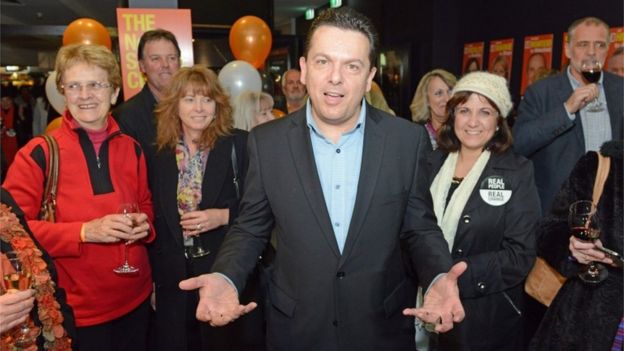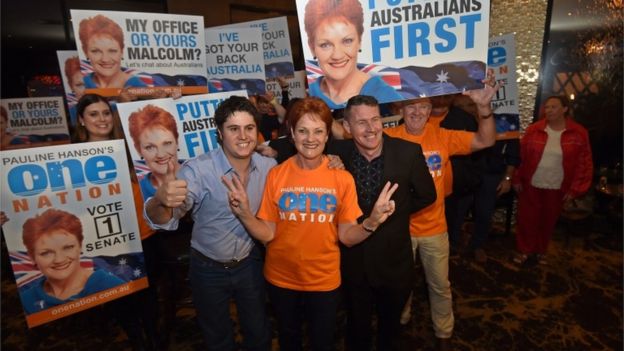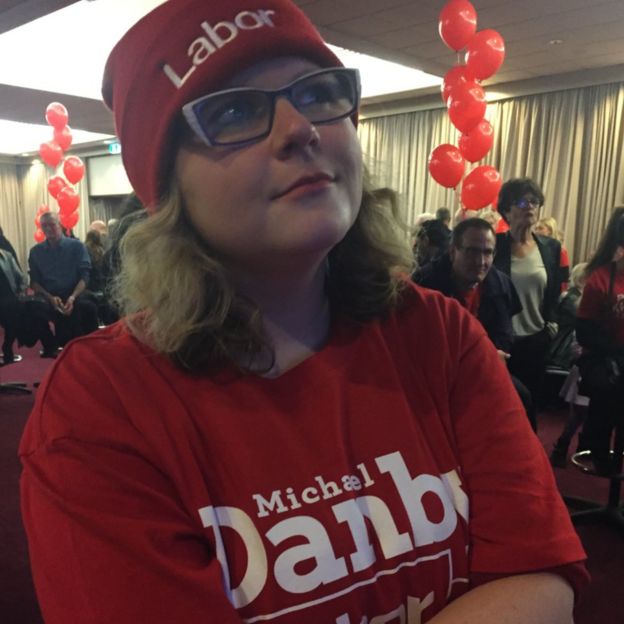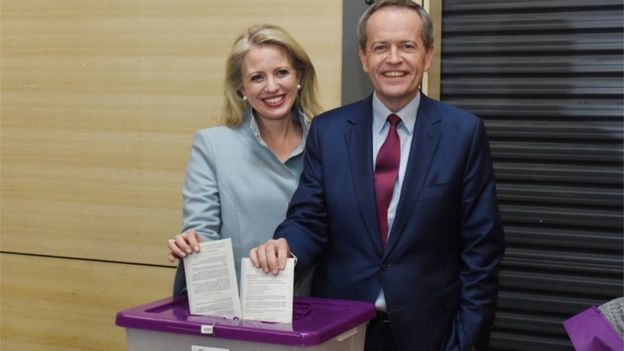
This article is more than
9 year oldHowever, it remains unclear if it has won the 76 seats it needs to stay in power without the support of independents and minor parties.
Postal and pre-poll votes are now being counted as a number of important seats go down to the wire.
More than 10 million people cast ballots on Saturday, on top of four million who voted early.
All 150 seats in Australia's lower house, the House of Representatives, are up for grabs at the election, as are 76 seats in Australia's upper house, the Senate.
Results so far suggest Australians voted in large numbers for independents and minor parties.

Senator Nick Xenophon has been pegged as a potential kingmaker after his newly formed political party took the lower house South Australian seat of Mayo, formerly a safe Liberal seat.
Mr Xenophon is expected to be returned to the Senate and his party may gain additional upper house seats, particularly in South Australia.
Pauline Hanson's One Nation party has polled strongly in Queensland and although it has not won a lower house seat, its preferences have tended to flow to the opposition Labor Party.
Ms Hanson told the Nine Network that, based on early results, she was likely to secure two spots in the Senate.

Labor has improved strongly on the 55 seats it currently holds in the lower house, gaining seats in Tasmania, New South Wales and Queensland.
Opposition Leader Bill Shorten's claims that the government intended to dismantle Australia's public health system, Medicare, was widely being credited with creating a late swing to Labor.
Election sizzles: Democracy with a side of sausage
Cartoon: Planet of Forbidden Prime Ministers
Are Australians ready to gamble on yet another PM?
The massive scale of Australia's election
Who's who in Australia's 2016 federal elections?
They came wearing red T-shirts emblazoned with "We'll put people first" and "Proud to be Labor". Their hopes of an outright victory have been dashed, but they are buoyant.
The faithful arrived at the Moonee Valley Racing Club in Bill Shorten's constituency of Maribyrnong, hoping to witness election history by unseating a first-term government for the first time in more than 80 years.
For a while it was neck and neck - Labor loyalists, many enjoying beer, wine and party pies, turned up the volume.

But then there was a gradual realisation that an overall win was beyond them as Labor's momentum stalled.
What will a hung parliament mean for Mr Shorten, whose performance in this campaign has delighted many of his supporters?
Could there possibly be a fresh election if neither Labor nor the Liberal-National coalition can attract enough support to form a government?
All this will be part of the rich political theatre of the coming days and weeks.
It was thought the result of the UK's referendum on the EU would benefit Mr Turnbull, who assured voters that he could deliver "economic certainty".

The former lawyer and investment banker vowed to deliver tax cuts for workers and small businesses.
In contrast, Mr Shorten has promised to make his first priority legalising same-sex marriage.
The government and Labor have sparred over the economy, healthcare, immigration and same-sex marriage during the campaign.